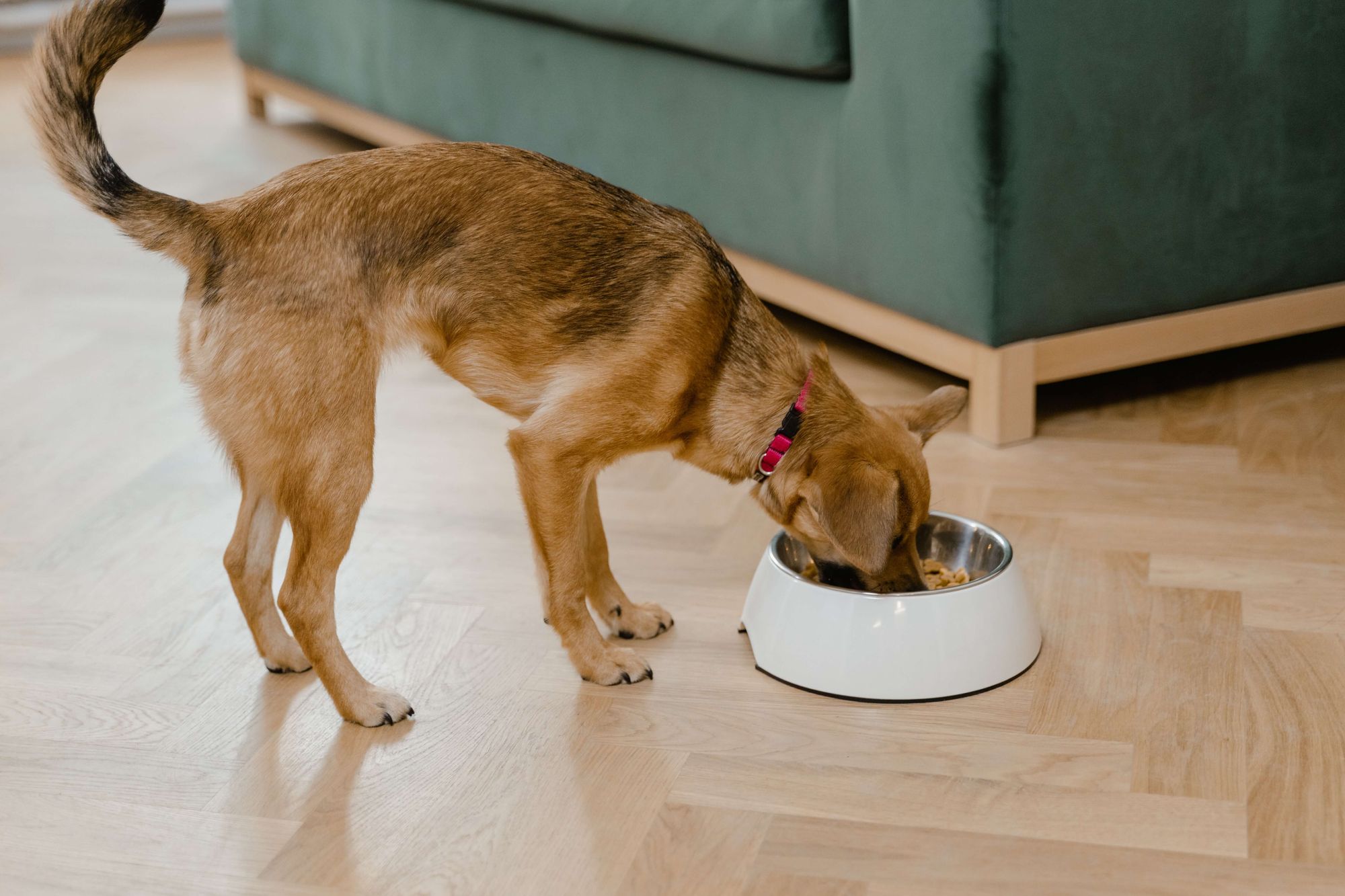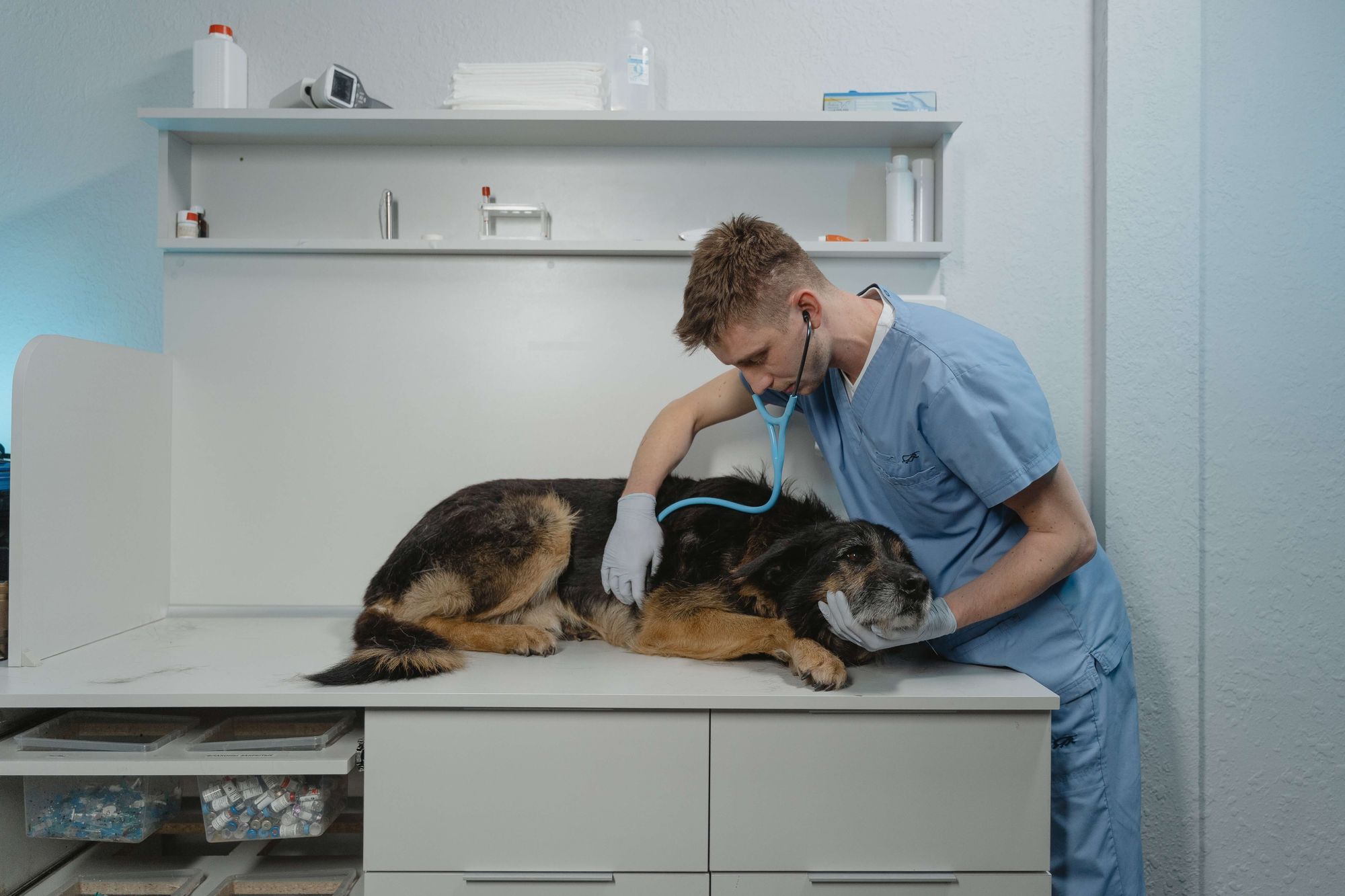It’s such a worry when our fur babies are sick. We’ve done some research into why dogs throw up occasionally and what we pet parents can do about it. There are some common telltale signs your dog is feeling nauseous, you may notice your dog is licking their lips constantly, eating grass, pacing up and down, or even refusing food. They may also struggle to keep water down and begin to dribble.
Vomiting is a symptom that can be caused by a number of different things. It is important to figure out the cause of your dog’s vomiting so that you can help them feel better. It’s also crucial to take them to the vet for a check-up when needed. So what are the potential causes and home treatments, and how to know when it’s time to take them to the vet?

Some causes for vomiting are:
- Eating grass or other plants: Your dog might be experiencing nausea and as a result eats grass to be able to purge the sickness. It may be that your dog ate a plant they shouldn’t have, and a result vomits shortly after.
- Eating too quickly: When your dog eats their food too excitedly, there is a chance they may regurgitate their food. Regurgitation is different to vomiting. Although it might seem a bit gross, it is perfectly safe for them to eat this regurgitated food again.
- Too much sun: If your dog vomits after spending some time in the sun, they may have been feeling nauseous and threw up as a result.
- Allergies: If your dog has allergies, they may vomit as a result of an allergic reaction to something they've eaten or touched. Note any recent dietary changes or anything they may have eaten on a walk.
- Gut blockage: It may be that your dog has eaten something it shouldn’t have, such as a toy. Signs to look out for are your dog sitting in a ‘praying’ position, which will be visible if your dog has their front legs on the ground and their back end raised high. You may also notice they are constipated.
- Infection: Your dog may have a stomach bug. Viral infections such as canine parvovirus may also cause vomiting. This type of virus is contagious and affects dogs who have not yet been vaccinated against it.
- Kidney disease: Kidneys help to remove toxins from the body. As these toxins begin to build, your dog may be sick.
- Cancer: A biopsy will be needed to determine if this is the cause of your dog’s vomiting.
- Pancreatitis: The pancreas is responsible for aiding food digestion. Pancreatitis happens when the pancreas is inflamed and is more likely to happen when dogs are older and overweight.
- Canine Gallbladder Mucocele (GBM): The gallbladder is an organ that stores bile. Your dog may have mucocele or sludge built up in their gallbladder, which could lead to rupture if not treated promptly.
Frequency of Vomiting
If you notice your dog is feeling nauseous and eating grass, start to keep track of how many times this happens and what the type of sick could reveal. This can be caused by the ingestion of grass or other plant material, eating spoiled food, or drinking contaminated water. If it’s a once off, continue to monitor your dog throughout the day and check they have plenty of fresh water to drink and keep hydrated. Vomiting is often accompanied by nausea, yellow eyes and drool, and a loss of appetite. Morning vomiting may also be a sign of an intestinal obstruction or other blockage.

Types of Vomit and Possible Meaning
- Green: If your dog has eaten a lot of grass the colour of their vomit may appear green. It may also be that they are vomiting bile. Monitor the amount of times your dog has green sick and contact your vet if it persists for more than a few days.
- Yellow: Most of the time this will be your dog throwing up bile. This could indicate a biliary concern such as an issue with the gallbladder.
- White: If your dog’s vomit is white, it may be they have eaten grass or they have an empty stomach. If it is foamy in nature, they may be suffering from a gastrointestinal issue and will need to be assessed by the vet.
- Red: This may be a sign that your dog is vomiting blood. The hue of red is usually an indicator of the cause, if it is a fresh looking red, it could mean a stomach inflammation or a toxin. If it is a darker red, it may be due to a stomach ulcer.
- Brown: This may just be the colour of your dog’s food. If dark brown it could also be a sign your dog has eaten poo or has an intestinal blockage.
- Black: Your dog may have eaten dirt or mud which could be a result of the appearance of this dark coloured vomit. However if it looks like your dog has vomited coffee granules, you should take your dog to the vet as it may be they have ingested a toxin.
Home Treatments For Dog Vomiting
Probiotics vs Prebiotics
You may want to use supplements or specific nutrient rich foods to help your dog’s gut recover from the vomiting episodes. Probiotics are good bacteria that help keep your dog’s gut healthy. They can be found in certain food products, and sometimes you can also get them in a pill form. Prebiotics are types of food that help probiotics grow and stay healthy. They can be found in things like bananas, oats and legumes which can be safely fed to your dog.
Food
Try a hypoallergenic, low fat, high alternative protein wet or dry food such as HOWND Superfood. HOWND recipes contain 100% clean ingredients and pre- and probiotics, to help keep your dog’s gut healthy.
Feeding your dog at regular intervals
If your dog is being sick in the mornings, you may want to try feeding your dog throughout the day. Feeding them later in the night may keep them from waking up and vomiting on an empty stomach. It is also important to weigh your dog’s food to ensure you are not over or under feeding them. Even if they give you puppy eyes it’s advised not to give them human food – as tempting as it is!

Fresh water
It’s vital your dog stays hydrated after being sick, so keeping several dog bowls around your home with water topped up will give them a chance to drink when they need it without having to go looking for their bowl when they are feeling poorly.
Rest
When your dog is feeling under the weather, whatever the cause, it is good to let them rest and not let them get too excited or take them for very long walks. It is best to keep to shorter walks until they are feeling better.

When to seek expert help
If your dog has been vomiting for more than 24 hours without any improvement in their symptoms, then you should contact your vet to help determine the cause. It may be that they have a gastrointestinal issue that needs to be dealt with promptly. Even if your dog is acting normal you should take them for a check up as revealing the cause sooner rather than later may be vital.
Diagnosing the cause of Vomiting
Your veterinarian will ask about your dog’s diet, the frequency of their vomiting and will also take into account their age. It may be necessary to do a full body check-up, take some blood samples, x-ray scans and do an ultrasound. If needed they may also have to perform an endoscopy. Having pet insurance is always beneficial and can help with costs in the long run.

We hope this sheds some light on the main causes of vomiting and some useful tips and remedies. We wish your fur baby a happy healthy tummy!




